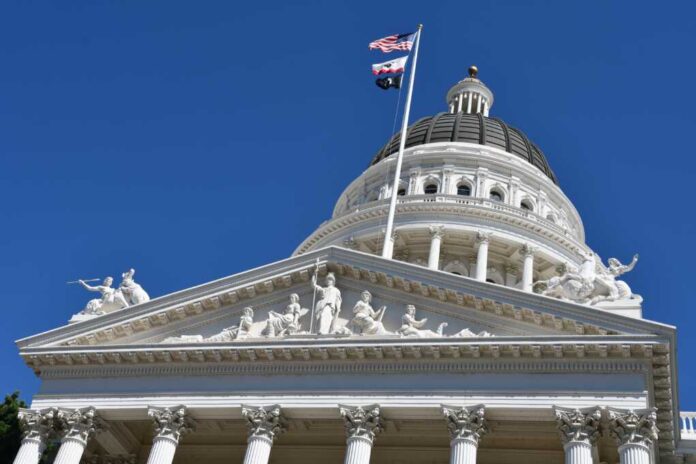
California’s bold decree to shield its hospitals from ICE raids is not just a legal skirmish—it’s a high-stakes collision of law, ethics, and the very soul of public health.
Story Snapshot
- California is the first state to legally block ICE from entering hospitals without a judicial warrant.
- Medical staff and patients face ethical and legal dilemmas as state and federal authorities clash.
- Immigrant communities report less fear and better healthcare access amid new protections.
- The federal response remains uncertain, setting the stage for a national legal showdown.
California’s New Healthcare Sanctuary Law: A Flashpoint Emerges
September 20, 2025 marked a seismic shift in California, as Governor Gavin Newsom signed into law a sweeping set of protections barring federal immigration enforcement—including ICE officers—from entering hospitals, clinics, or schools without a court order. This move responded to a cascade of reports from early 2025: ICE officers, once discouraged but never truly forbidden from showing up at medical facilities, had begun appearing at hospitals in Los Angeles, San Francisco, and inland counties. Patients—many undocumented, some legal residents—described interruptions to care, fear-driven refusals to seek treatment, and healthcare workers caught in ethical knots, forced to choose between medical oaths and the demands of federal agents.
California Faces Limits as It Directs Health Facilities To Push Back on Immigration Raids https://t.co/QlC2r2v6jC
— Patty 🌻🇺🇸🌵 (@littlebytesnews) October 30, 2025
Inside the Collision of State and Federal Power
California’s new law is not merely symbolic. It reasserts the state’s “police powers”—its constitutional right to protect public health and safety—against federal authority. The law’s teeth are sharp: no ICE agent may enter without a signed judicial warrant. Hospital staff are trained to refuse entry, protect patient records, and calmly inform federal officers of the new requirements. The state government, led by Newsom, frames the move as a moral defense—aimed at halting what he terms “fear tactics used by Trump’s secret police force to terrorize communities.”
Watch: California enacts law to protect patients as ICE targets hospitals and clinics. – YouTube
Real-World Impact: Trust, Trauma, and the Healthcare Ethic
Within weeks of the law’s passage, immigrant families reported a palpable decrease in anxiety. Children previously too afraid to seek medical help returned to clinics. Nurses and doctors, relieved of the shadow of federal intervention, described a return of trust—essential for public health outcomes, especially during crises like flu season or mental health emergencies. Healthcare organizations rolled out protocols, trained staff on patient privacy rights, and partnered with advocacy groups to educate communities on their new protections.
The National Ripple Effect and Ethical Stakes Ahead
California’s gambit has already rippled outward. Healthcare leaders in New York, Illinois, and Washington are watching closely, weighing similar protections. The core question remains: who gets to decide whether the hospital is a place of healing or a place of enforcement?
If California’s law holds, it may inspire a new era of healthcare sanctuary policies, prioritizing patient safety and trust over federal enforcement imperatives. If struck down, the message to immigrant communities—and every medical worker sworn to do no harm—will resonate far beyond state lines. The next chapters will unfold not just in courtrooms, but in the everyday decisions of hospital staff, patients, and lawmakers determining how, and for whom, America’s healthcare doors remain open.
Sources:
ABC7
CalMatters (Commentary)
CalMatters (Health)
California Governor’s Office
LawFirm4Immigrants


















